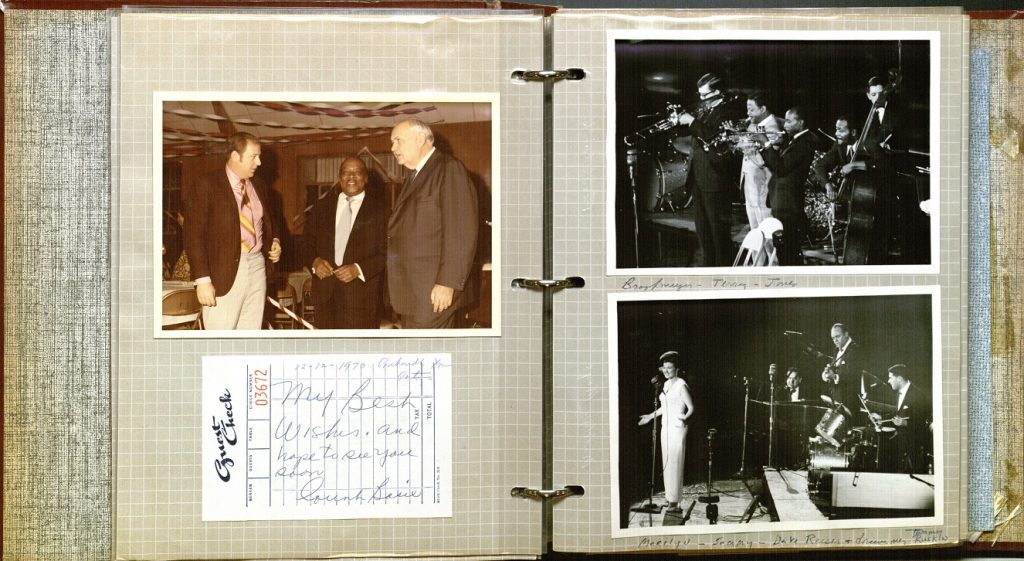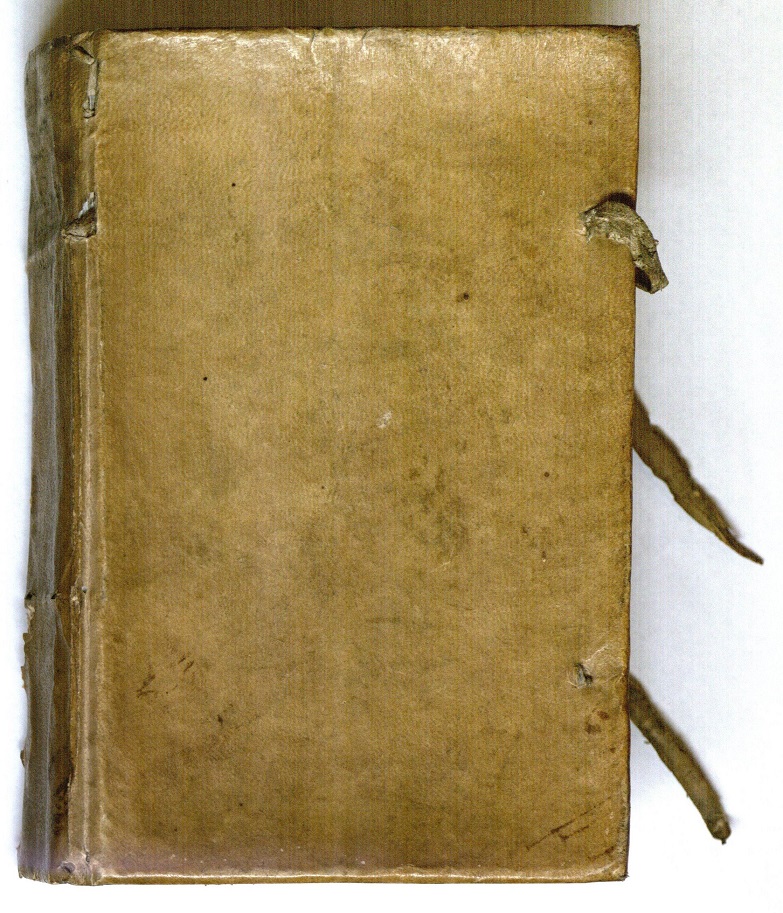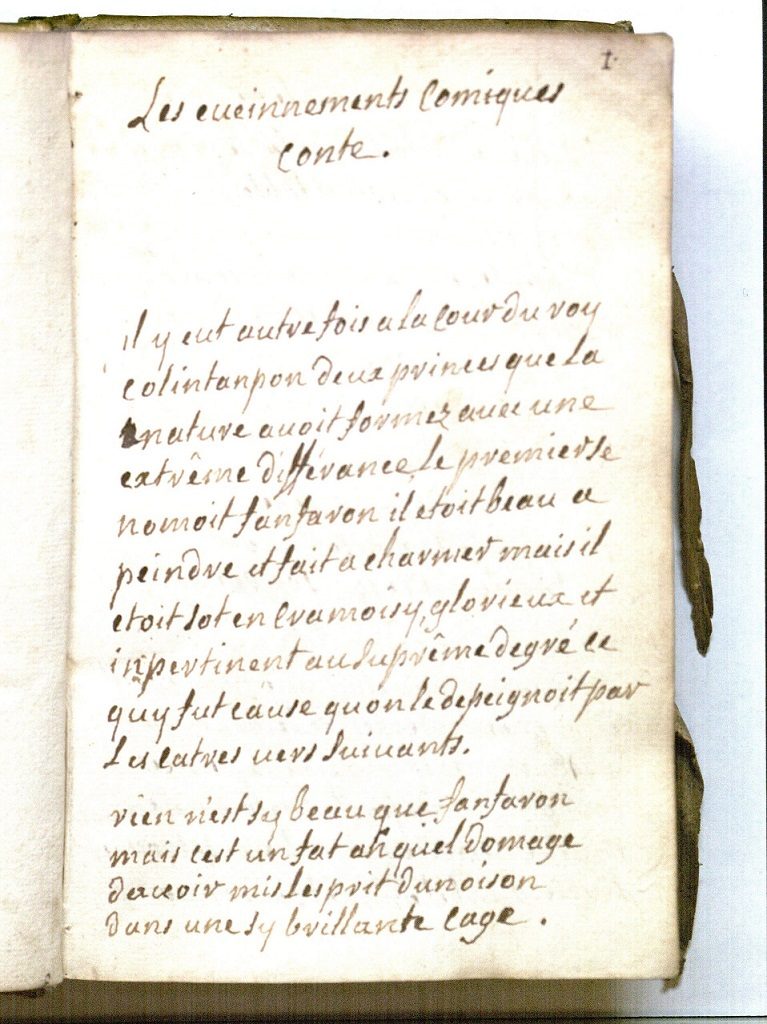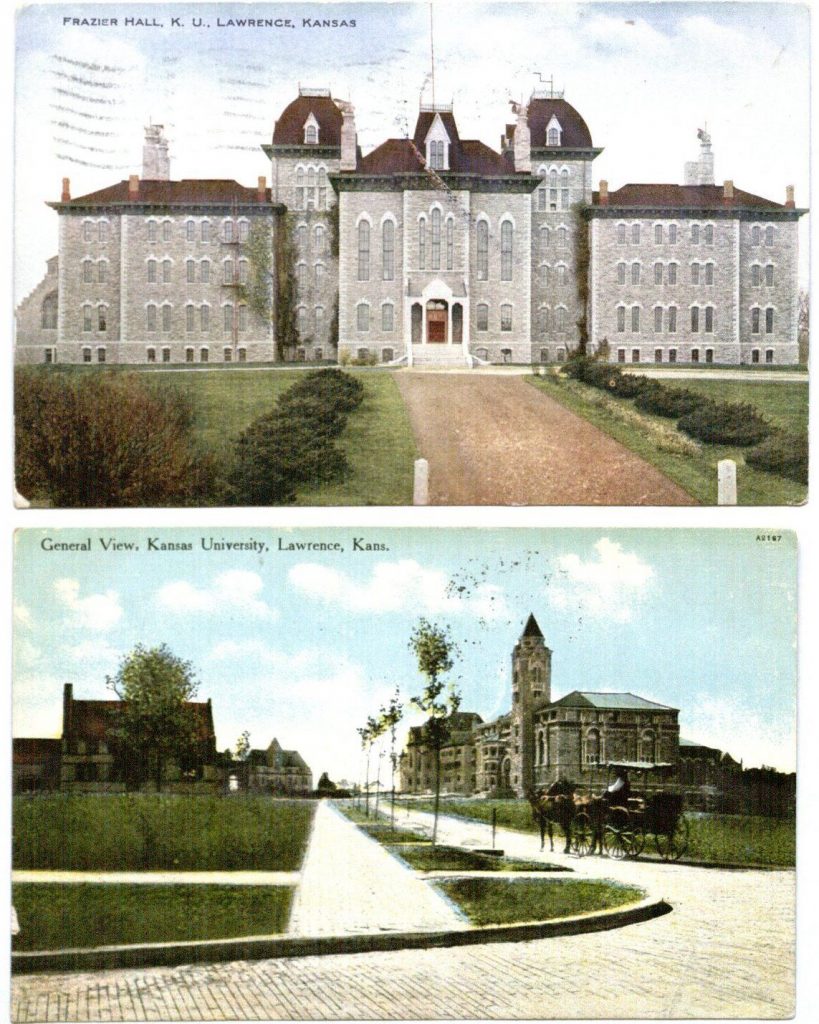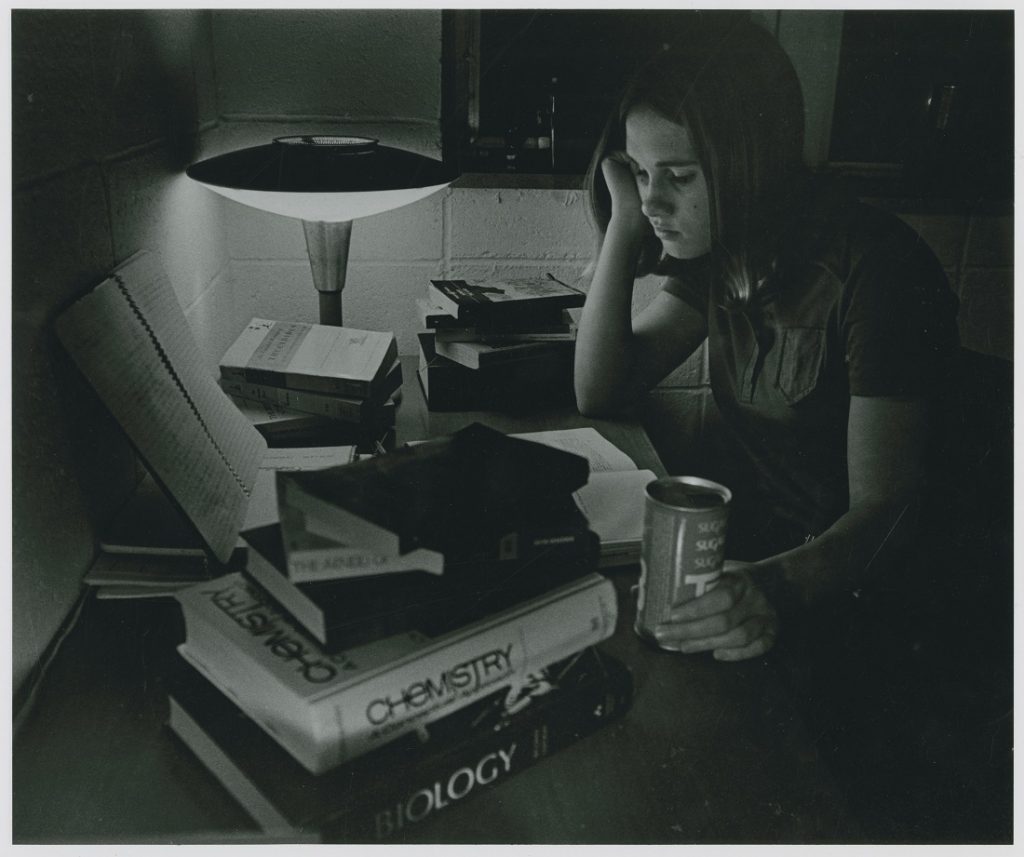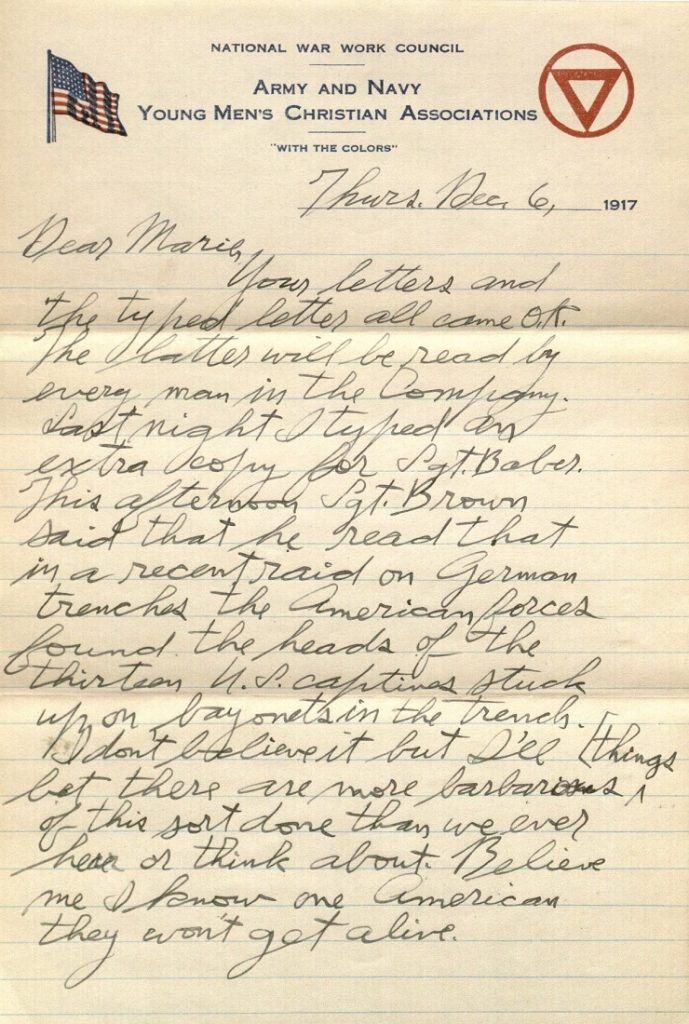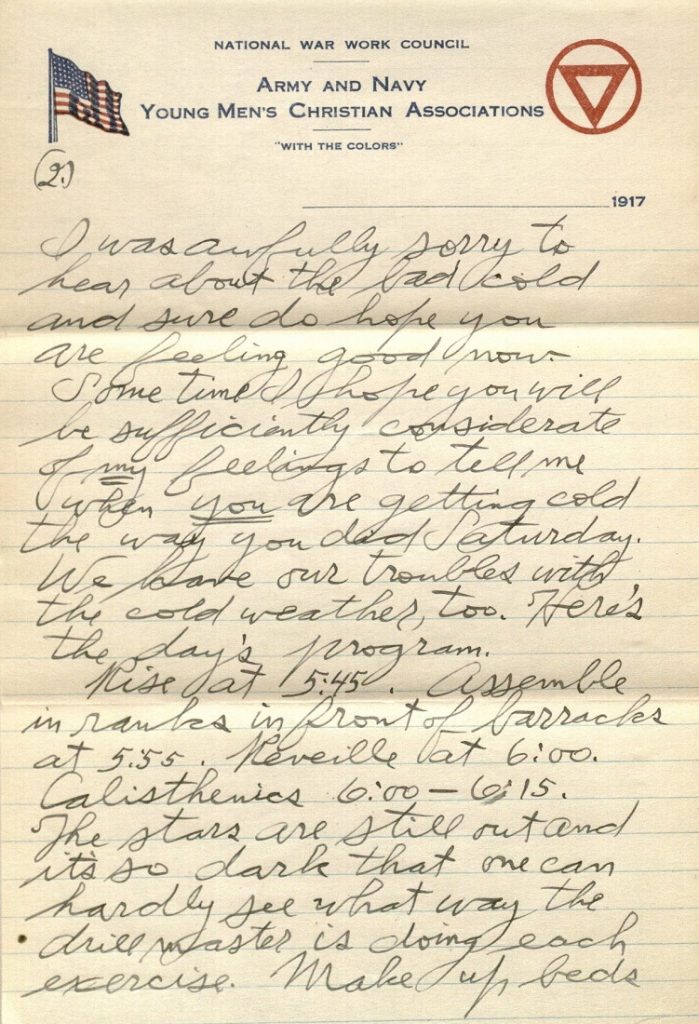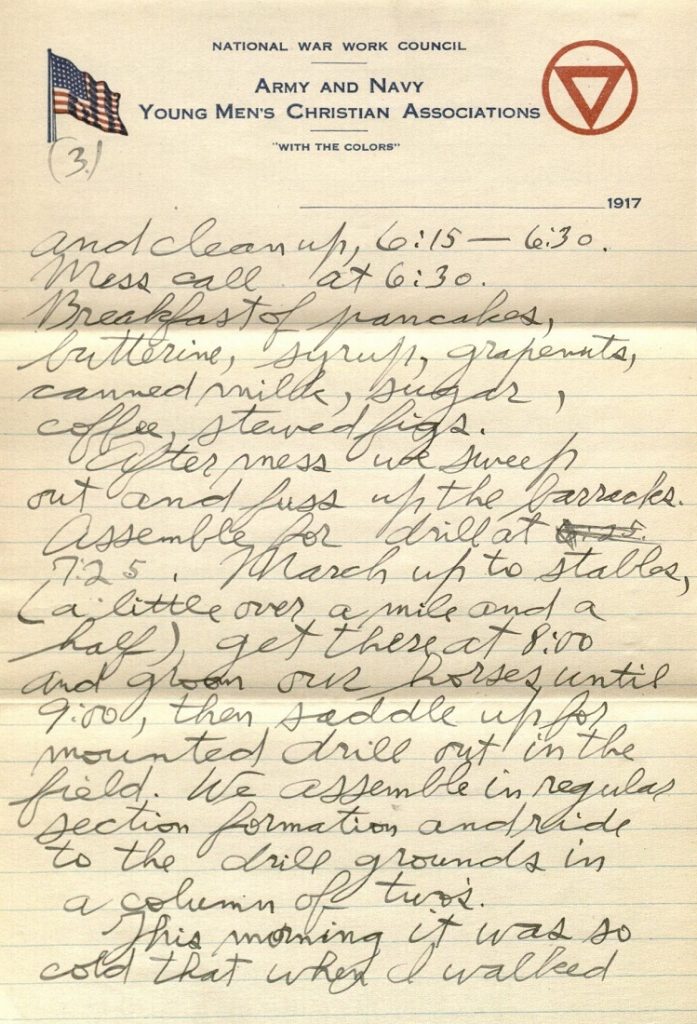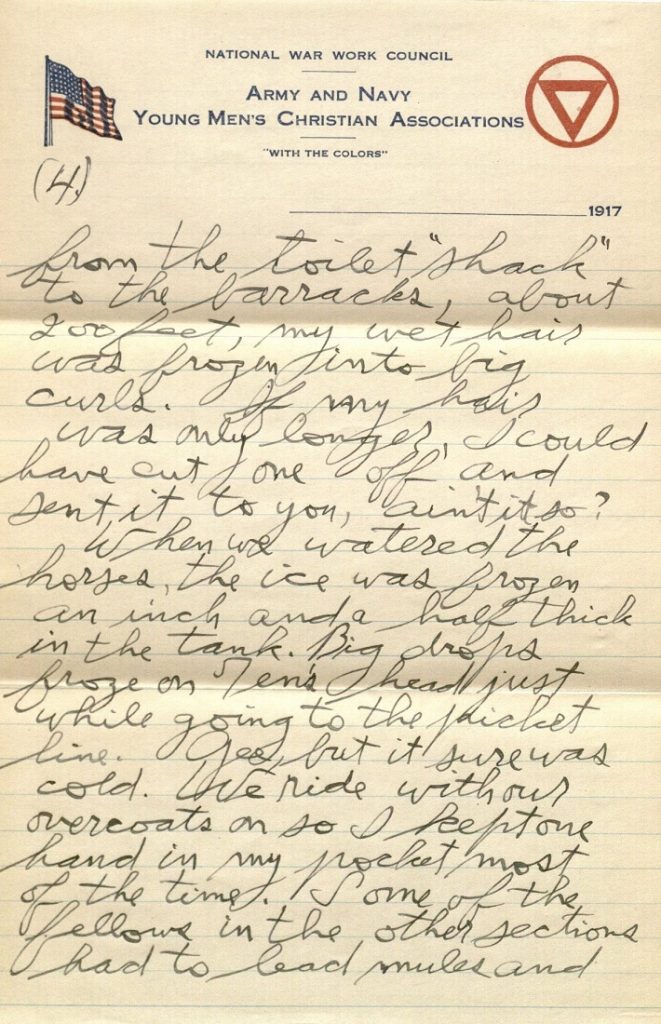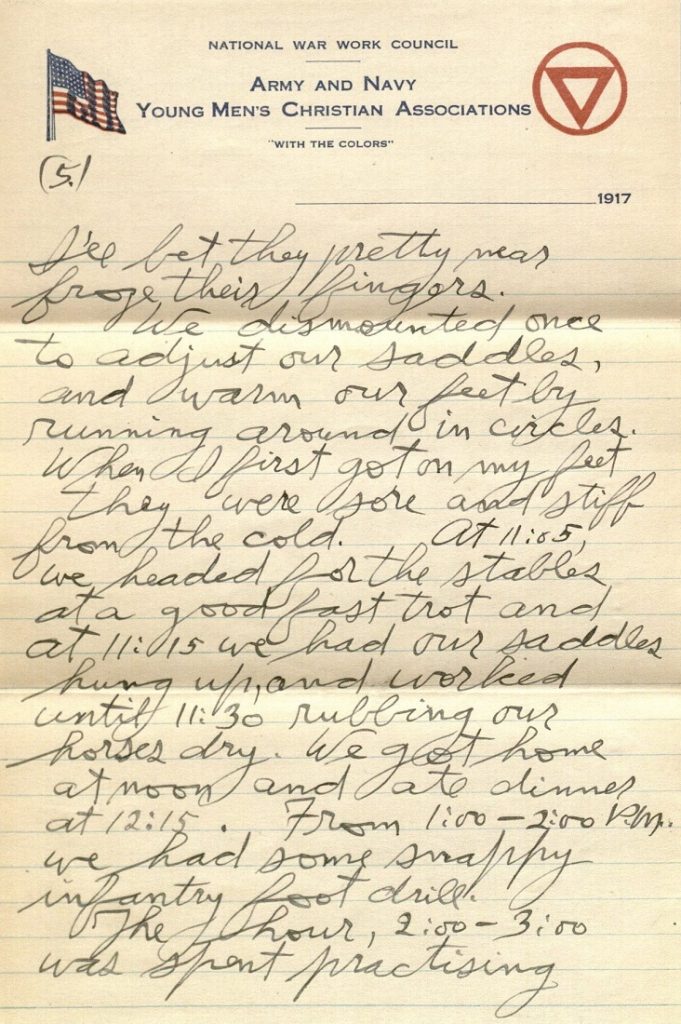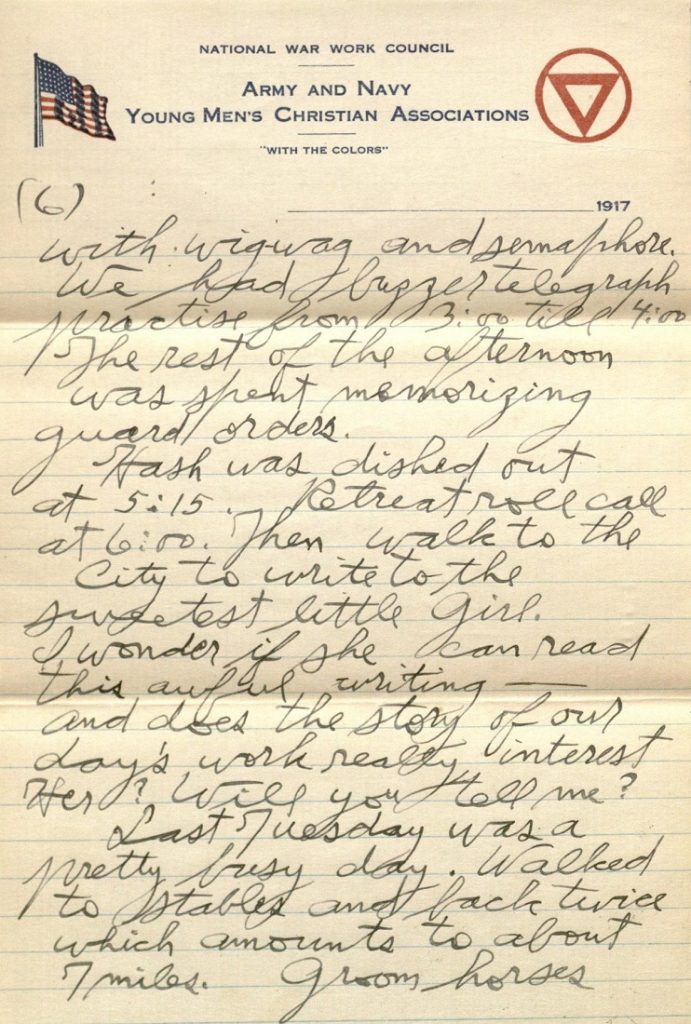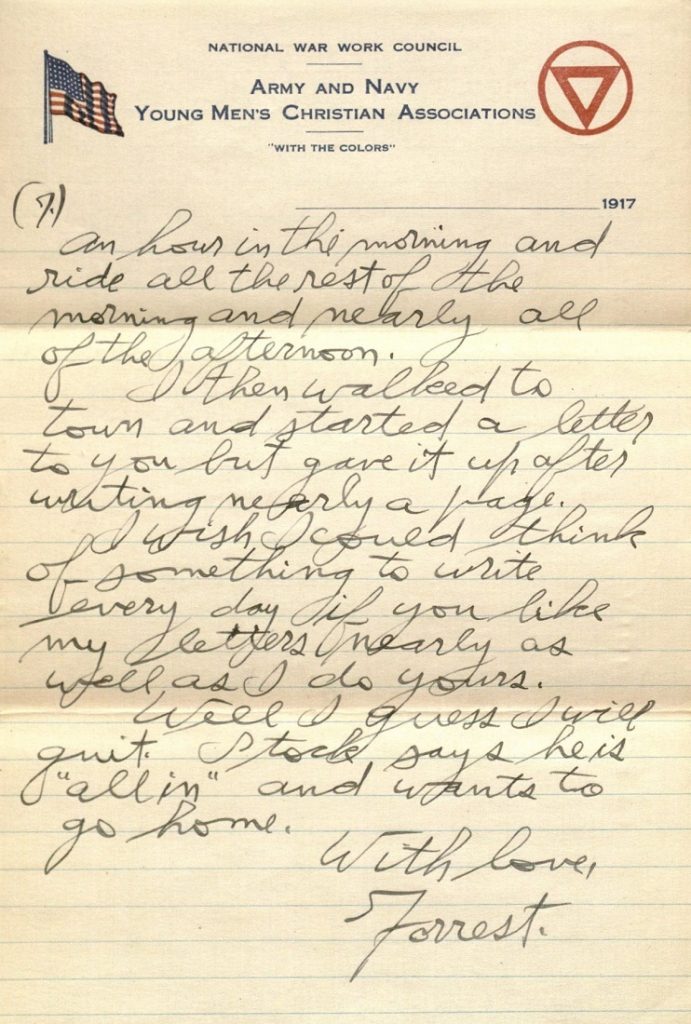New Finding Aids Available, Part III
December 12th, 2017Is the cold weather encouraging you to stay indoors? Why not dive into a new research project using one of the recently processed collections at Spencer Research Library? Today we share with you a list of finding aids published between May 2017 and November 2017. Finding aids are inventories or guide documents that assist researchers in navigating collections of manuscripts, organizational records, personal papers, photographs, and audio visual materials. You can learn more about finding aids in an earlier Finding Aids 101 post, and you can search the library’s finding aids here. As you begin your research, remember that Spencer Library will be closed for the holidays from December 23-January 1. However, if your New Year’s resolution is to conduct more archival research, you’re in luck since Spencer Library re-opens on January 2nd!
Enjoy a few images from three of these recently processed collections, and then scroll down for the full list of new finding aids.
Selected pages from a jazz scrapbook from the Chesterman C. Linley Scrapbooks.
Left page: Chesterman C. Linley with Count Basie at the at the Panhandle Christmas Party,
with Count Basie’s signature below. Right: Bobby Brookmeyer, Clark Terry, and Carmell Jones (top),
and Marilyn Maye (bottom). Call Number: RH MS EK5, Vol. 1. Click image to enlarge.
A volume containing two literary manuscripts by Mademoiselle de Lubert, “Les événements comiques conte” (above) and “Chélidonide histoire grecque,” approximately 1740-1760. Call Number: MS B182. Click images to enlarge.
University of Kansas postcards showing Frazier (i.e. Fraser) Hall (1909)
and a general view of campus (1910), from the Miller Family Postcard Collection.
Call Number: PP 581. Click image to enlarge.
New Finding aids
- African American Photograph Album, between 1880-1900. (RH PH 531)
- Reverend Lewis Allen Alderson Letters, March, April 1875. (RH MS P953)
- Phog Allen Papers in the Basketball Coach Records, 1933-1955. (RG 66/13/3)
- Sam Anderson World War II Ration Books, 1942-1945. (RH MS P957)
- Personal Papers of Brian Beatty, between 1996 and 2005. (PP 579)
- Bethel College, Newton, Kansas Negatives, between 1945 and 1955. (RH PH 528).
- Arden Booth State Senate Papers, 1964 to 1990 (bulk 1971 to 1976). (RH MS 1404, RH MS R405)
- Brenna Buchanan’s Research on La Yarda Collection, 1999-2009. (RH MS 1431)
- Personal Papers of John A. Burzle, 1920-1002. (PP 547)
- Confucian Culture in Korea: Woodblocks for printing books, 1867, circa 1910. (MS Q10)
- Creek Nation School Catalogue Page, 1871. (RH MS P954)
- Charles and Julia Dandridge Family Papers, 1901-1995. (RH MS 1153, RH MS 1306, RH MS-P 1306, RH MS-P 1306 (f), RH MS R350, RH Video 45, RH Cassette Tape 67, RH MS R257)
- William Dickerson Lithograph, 1934. (RH PH P2828 (f))
- Records of the Douglas County Home Economics Association, 1974-2014. (RH MS 1419, RH MS R416)
- Douglas County, Kansas Soil Conservation Practices Photographs, 1930-1979. (RH PH 532)
- Louis Drogey Collection, “Ice Gorge” of Lawrence, Kansas postcard, [between 1900 and 1920]. (RH PH P2820)
- Barbara Duke photographs, 1915, 1934. (RH PH P2827, RH PH P2827 (f))
- Early Telephone Service in Kansas Collection, 1879. (RH MS P951)
- Quentin James Eklund Studio Negatives and Photographs, 1946-1983. (RH PH 530
- English Poetical Miscellanies First-line Index, compiled 196-?. (MS 333, MS P746)
- Dr. H. M. Floersch Collection, between 1920 and 1946. (RH MS P950, RH MS-P P950).
- Fort Riley, Kansas Counseling Project Records, 1970s. (RH MS 1019)
- Great Armour Packing Factory Stereocard, 1890. (RH PH P2816)
- Edward Everett Hale carte de visite, circa 1870. (RH PH 2817)
- Hillcrest School Student Photographs, 1961-1962. (RH PH P2818)
- Lillie Holliday Papers, 1876-1932. (RH MS 1244, RH MS A42)
- Howard Family Collection, between 1850 and 1990. (RH MS 1410, RH MS-P 1410, RH MS R412, RH MS Q424)
- Judge William L. Huggins Photographs, 1870-1910. (RH PH 525)
- Hungate Family Papers, circa 1860-1965 (bulk 1920s-1948). (RH MS 1420, RH MS-P 1420)
- Diaries of Anna Johnson, 1910, 1920-1924, 1928-1950, 1956-1970, 1986, 1988. (RH MS 1421)
- Ronald Johnson Holograph Books, bulk 1963-1967. (MS D214, vols. 1-2)
- Ronald Johnson Collection (Literary Estate Papers), 1950-2007. (MS 336, MS Qa21, MS R18, SC AV 15, SC AV 16, SC AV 17)
- Kansas City Red Cross Photograph, July 17, 1951 (RH PH 2814)
- Kansas, Nebraska, and Oklahoma Postcard Sets, 1944[?]. (RH PH P2822)
- Kansas Women Schoolteachers Project Records, 1981-1982. (RH MS 872)
- Kaw Valley Older Women’s League (O.W.L.) Records, 1983, 1991-2016 (bulk 1992-2008). (RH MS 1423, RH MS Q47, KC AV2)
- Lawrence Art Guild Collection, 1992-2013. (RH MS 1430, RH MS Q431, RH MS R422)
- Lawrence Kansas Downtown Historical Survey, 1983-1984. (RH MS 403, RH MS-P 403)
- Lawrence, Kansas 75th Anniversary Collection, 1920-1929. (RH MS P777, RH MS R44, RH MS E142)
- Postcards of Lawrence, Kansas, 1912. (RH PH P2819)
- Chesterman C. Linley Scrapbooks, 1950-1979. (RH MS EK5)
- Little Bighorn Prints by William Nelson, 1976 (RH PH P2826(ff))
- Locomotive Finished Material Company of Atchison, Kansas Collection, approximately 1925. (RH PH P2821)
- Two Literary Manuscripts by Mademoiselle de Lubert, approximately 1740-1760. (MS B182)
- D. D. McCleery photographs, 1964, 1996-1997. (RH PH 524)
- Jim McCrary Papers, 1972-1995. (MS 332, MS Q69)
- Personal Papers of Ross E. McKinney, 1962. (PP 580)
- Henry Messenger Photographs, between 1910 and 1950. (RH PH 526)
- Miller Family Postcard Collection, 1909, 1910, [1915?]. (PP 581)
- Tim Miller Papers, 1970-1984, 2000. (RH WL MS 44, RH WL-P PH 5)
- E. Jennifer Monaghan Papers, 1974-2011. (MS 308, MS 335)
- Russell Mosser Collection, 1902-1917, 1949-1992. (RH MS 1429, RH MS-P 1429 (f))
- Group Photograph by Murray Studio, between 1940 and 1960. (RH PH P2825)
- Northwestern Missouri Photographic Prints, [1890-1900?]. (RH PH P2824)
- Penn House Collection, 1970s-1981. (RS MS 1432)
- Pride Week of Lawrence, Kansas Collection, 2002. (RH MS P955)
- Personal Papers of Amber Reagan-Kendrick, 1995-1997. (PP 578)
- William C. Rein Papers, 1985-1993, circa 2007. (RH MS 1181, RH Cassette Tape 50)
- Robert B. Riss Collection, approximately 1400-1949. (MS 331, MS Qa18, MS Q68, MS R17)
- Personal Papers of Edward L. Ruhe, 1951-1989. (PP 510)
- Gertrude Leona Sailors‘ Daughters of the American Revolution Records, 1917-1930s. (RH MS P948)
- Sons of Union Veterans of the Civil War Photograph, 1929. (RH PH P2823)
- Stewart Family Photographs, between 1850 and 1939. (RH PH 529)
- Howard N. Stoner Audio Recordings, approximately 1970s-1980s[?]. (KC AV 3)
- Street Parade Photograph, between 1890-1910. (RH PH 2815)
- Lois Swaney Collection, 1929-1940s. (RH MS P949, RH MS-P P949, RH MS R410)
- Helen Thomas Papers, 1975. (RH MS P956)
- Virgil Thomson Collection, 1952-1954. (RH MS P947)
- Personal Papers of Rud Turnbull, 1967-2010. (PP 511, 545)
- Unified School District 497 Records, 1867-2013. (RH MS 1255, RH MS 1334, RH MS H21, RH MS Q353, RH MS R318, RH MS R319, RH Video 32, RH Cassette Tape 56, RH CD 31)
- John Palmer Usher Correspondence, 1861-1865 (RH MS P565)
- Views of Western Kansas Photographs, 1911, 1927, undated. (RH PH P2813)
- William and Lula White Family Papers, 1867-1990. (RH MS 1310, RH MS-P 1310, RH MS Q382)
- William B. Young Journal, April 19, 1865 – June 30, 1865. (RH MS P958)
Elspeth Healey
Special Collections Librarian
and
Marcella Huggard
Archives and Manuscripts Processing Coordinator

